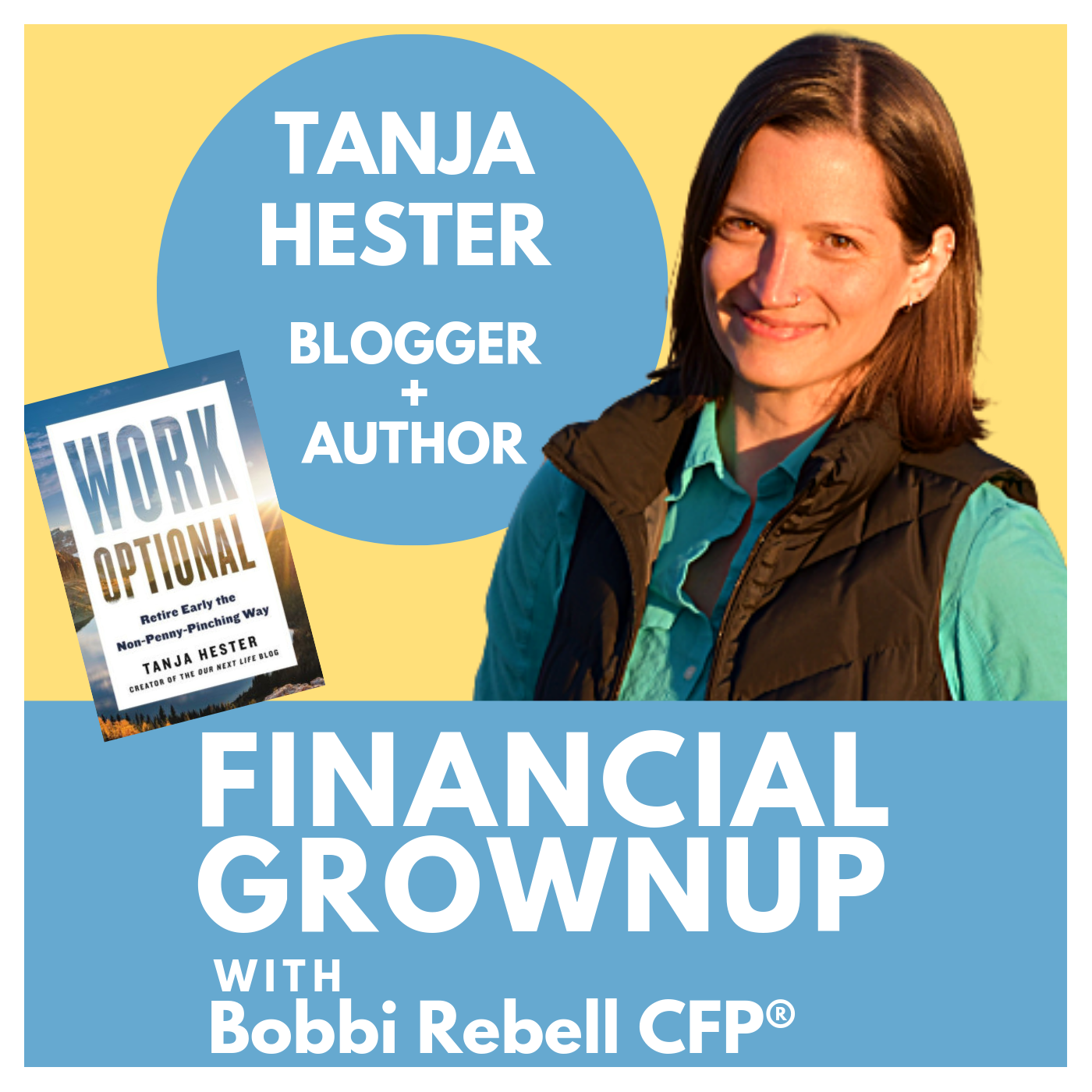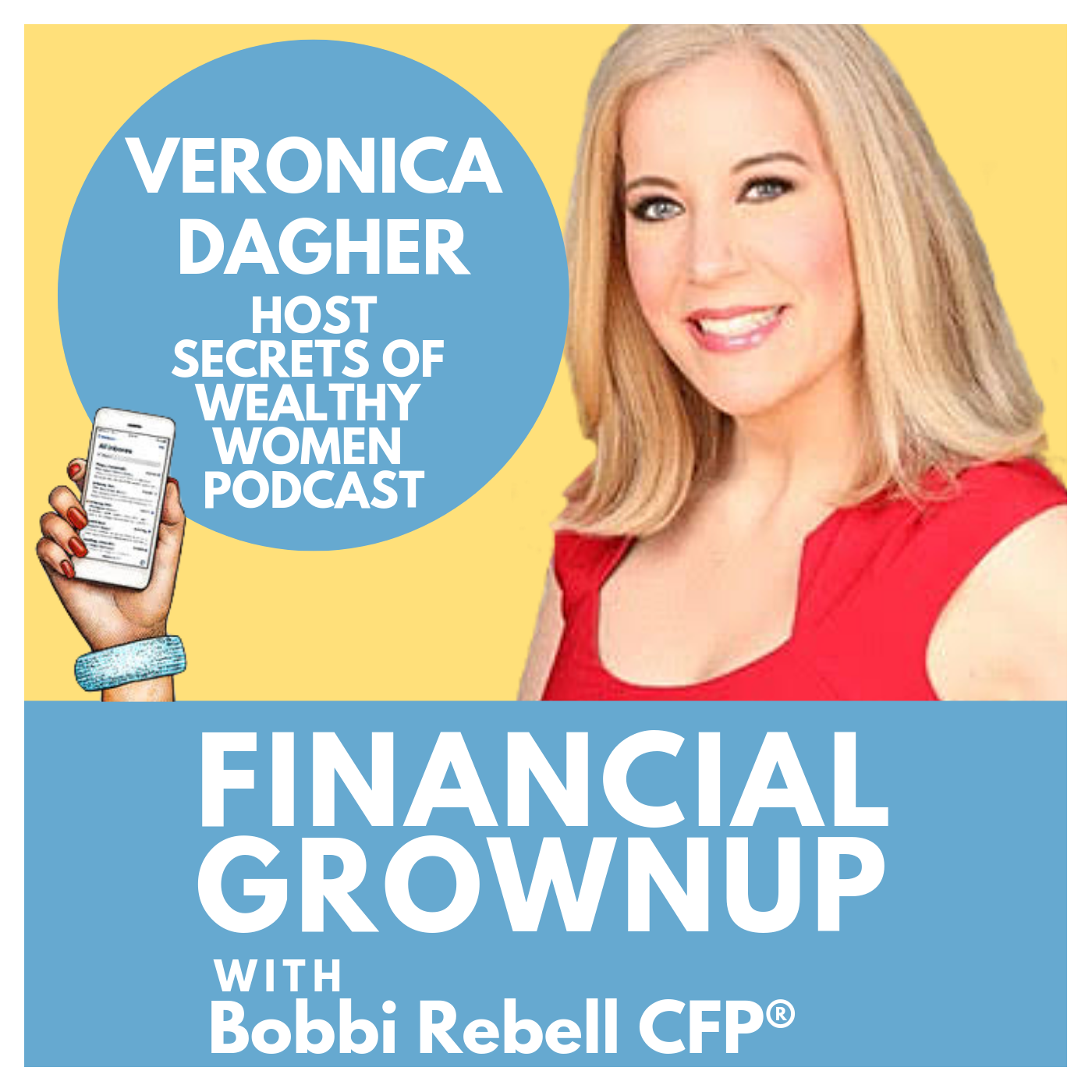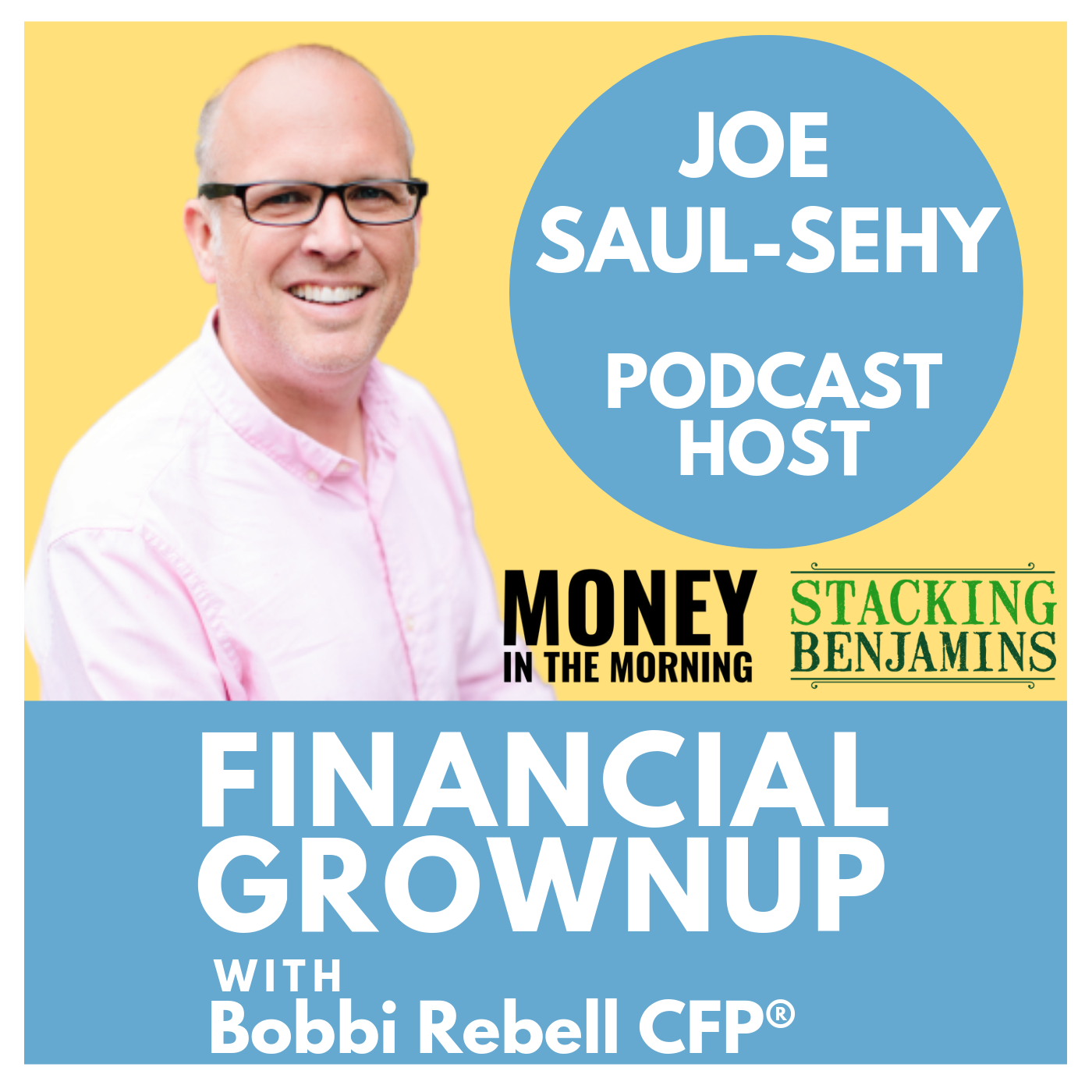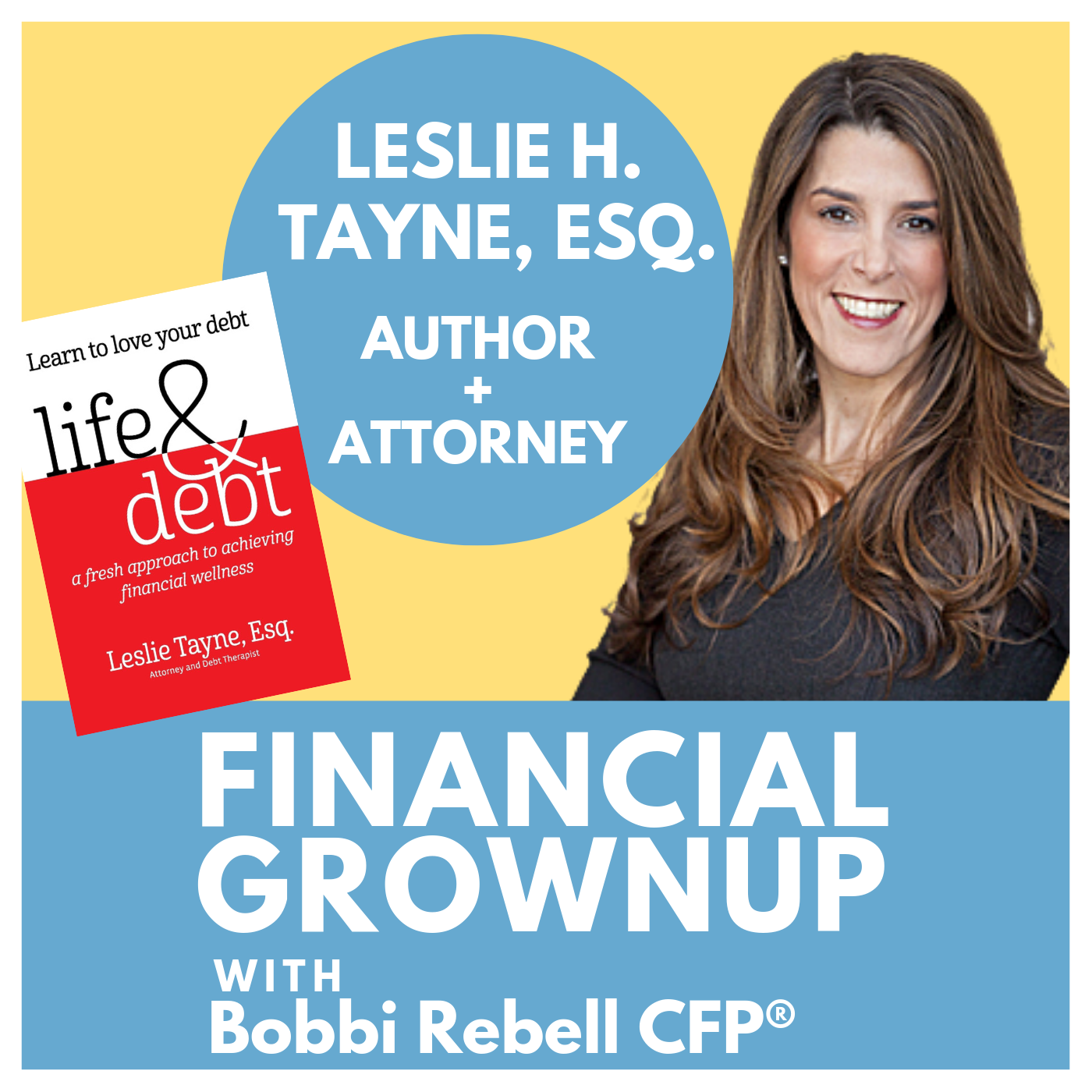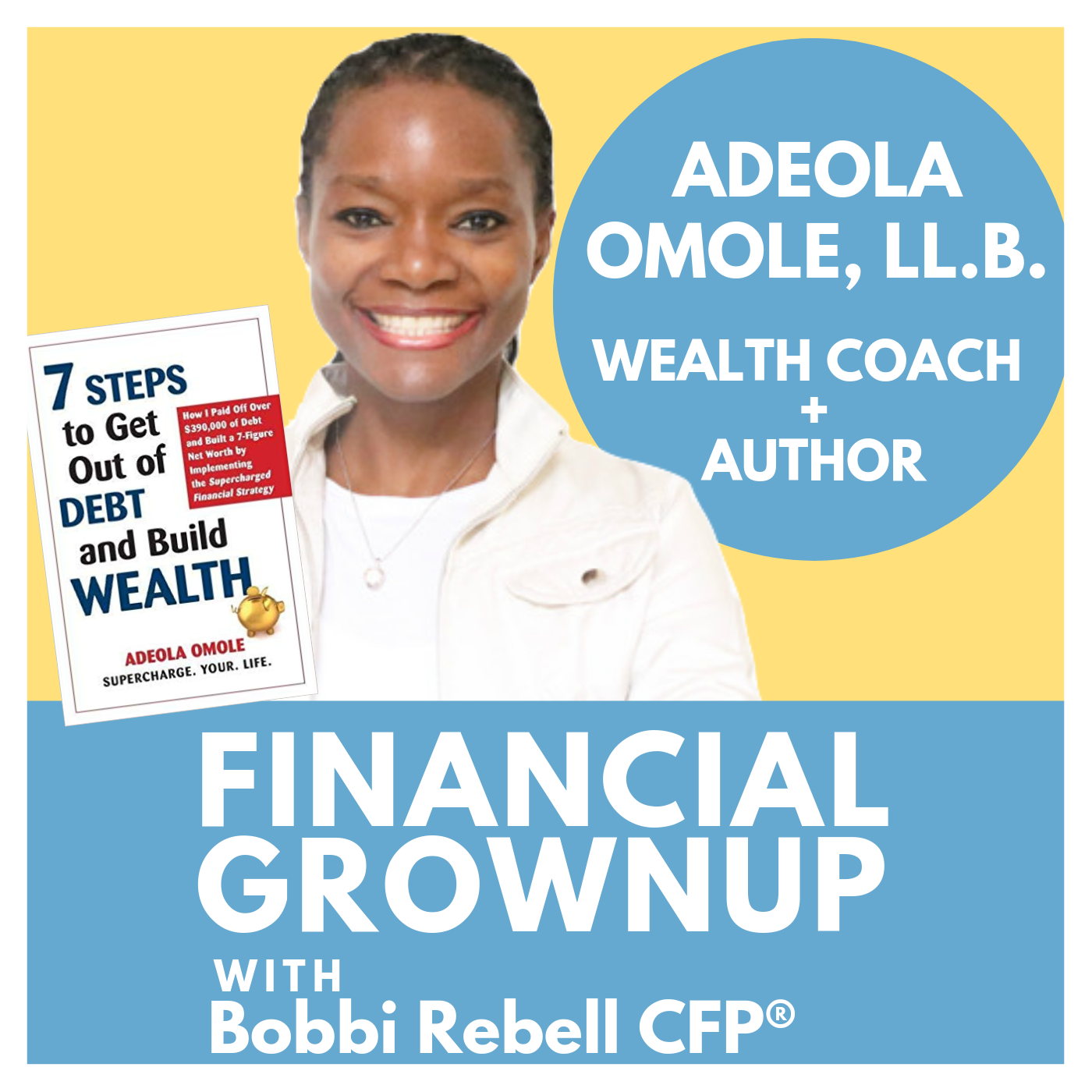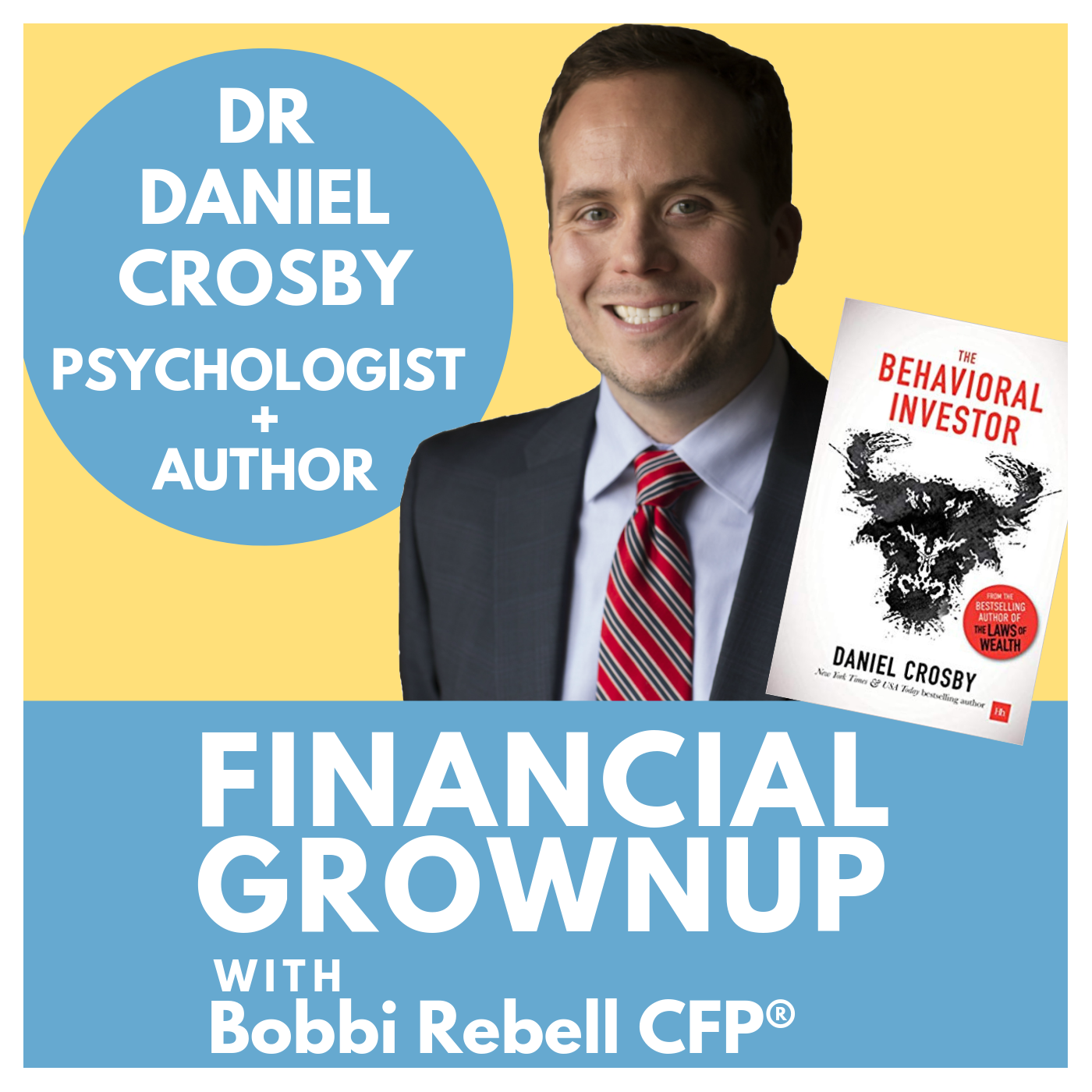Some of the links in this post are affiliate links. This means if you click on the link and purchase the item, I will receive an affiliate commission at no extra cost to you. All opinions remain my own.
TRANSCRIPTION
Barbara Corcoran:
I always spend money I don't have. If I see money coming in new receivable, three months out, I committed that day, what I'm going to spend it on, and I start spending it even before it arrives.
Bobbi Rebell:
You are listening to Financial Grownup with me, certified financial planner, Bobbi Rebell, author of How To Be a Financial Grownup and you know what? Being a grownup is really hard especially when it comes to money, but it's okay. We're going to get there together. I'm going to bring you one money story from a Financial Grownup, one lesson and then my take on how you can make it your own. We got this.
Bobbi Rebell:
Hello, my Financial Grownup friends, brace yourself Barbara Corcoran is here and she is going to give it to us straight up, no beating around the bush and she said some things that frankly I was pretty surprised with. They go against almost everything that I've been taught about building a solid financial foundation for your life, for your business, but she made it work. I'm still not sure I could make it work for me, but I'm thinking about it because she makes a good case and I'm interested to hear what you guys think after you hear her interview.
Bobbi Rebell:
So glad you are here. As I said, this episode is a really big one, so if you're new, you're joining it a really good time. We do something by the way called flex time for podcast, the episodes are kept pretty short, around 15 minutes. The idea is no excuses you can always fit it in, make it easy for you while you're running a quick errand, what have you, but if you have a longer commute, you can also stack them. We have a library now of more than a hundred episodes so you can listen to a few on your commute if that's what worked for you. Make sure that when you subscribe and hopefully you are subscribing, we really need the support that you set the downloads, go into the manual settings and set it so that you automatically get the downloads so that you don't miss any and you're good to go.
Bobbi Rebell:
And we love automation because that way things just happen and it's one less thing to remember. Alright, let's get to Barbara Corcoran and you know her from Shark Tank and now she has a new podcast called Business Unusual, also really short, so that's a good thing. She gives a lot of advice that seems shocking until you listen to it and listen to her reasons and then think that is part of how Barbara Corcoran is successful. It's the unusual. She approaches things in a different way from the way that we're always used to approaching it and it works for her. It may not work for you. The big takeaway from this episode, which you'll see I'm going to talk about after her interview. I don't know if I could do it, but I can see how it worked for her. So with that, here is Shark Tank's Barbara Corcoran.
Bobbi Rebell:
Hey, Barbara Corcoran you're at Financial Grownup welcome to the podcast.
Barbara Corcoran:
Thank you. Pleasure to be here.
Bobbi Rebell:
I am such a fan of your new podcast. For many reasons, of course also because it's a short podcast, but you have the best wisdom and you share so many lessons from your life, so thank you for that.
Barbara Corcora:
My pleasure. I enjoy doing it, but it's a scary proposition as I'm sure you will know, you have to earn people's ears while you're talking to them.
Bobbi Rebell:
You do, well you've been earning it for many years and you're going to share a money story from early in your life, your very first real estate purchase or I should say your first house and it sounds like it's going to be a story, but there's something that happened that I think people want to hear. Go for it.
Barbara Corcoran:
Yeah, and it has a valuable lesson. When I committed to purchasing my first home with my first husband. I was about 29 years old. I didn't have a pot to pee in as they say, but we sat across the dinner table for a man who said he was selling a certain house that was like a magical house from what I heard, and my mouth said, I'll take it. And why it was magical. It was a house that anybody would think you could only dream about, which was a house with eight bedrooms two guest cottages, a wet and a dry boat house facing a brand new lake.
Bobbi Rebell:
Did you have kids at this point, Barbara?
Barbara Corcoran:
No, of course not.
Bobbi Rebell:
Who was moving into this mansion?
Barbara Corcoran:
Listen, I figured I'd have fun with friends, but I had no rights saying we'll take it to which my husband was more startled than I was over my own mouth. Because we didn't have a dime to our name, we were struggling to just meet our bills. We're still kind of kids coming up the ranks, but-
Bobbi Rebell:
Wait, so tell me what happened. How did you buy the house?
Barbara Corcoran:
Once I said we'd buy the house, we had the problem of coming up with the down payment, 7,500. And so my husband and I started eating tomato noodles every night that I think they're chef Boyardee or something in a can and bring them lunch every day and we saved every penny of what we were earning in our lives, short of the rent we had to pay for our studio apartment. Well, three months hence we had most of the down payment but not quite and we're out for dinner with the same big boss of his and he mentioned that his father, he wanted to close, which was putting ... Was scaring me to death because I still didn't have enough money.
Barbara Corcoran:
But he said his father was reluctant to leave the house and I volunteered. Well, why don't you let your father stay there, but in trade for that, I got four months extra time. So we were able to save the down payment of $7,500. No problem. But when we got to the closing, the closing costs too, which I didn't have, but he was so in dear to us for keeping his elderly dad in the house that he paid for the closing costs for us. And we moved into that beautiful house and we had it for seven years until I decided to leave my husband and he got the house.
Bobbi Rebell:
Why did that happen? How did you let that happen?
Barbara Corcoran:
You know why? Because I got the apartment in the city by then we had bought a one bedroom apartment in the city and I sold that one bedroom that I paid $80,000 for two years later for 250. And he sold that house that we had paid $75,000 for two years after our divorce for $75,000.
Bobbi Rebell:
So what is the takeaway for our listeners?
Barbara Corcoran:
I'm a believer in always committing throwing it out there and say I'm going to do it. Because when you have that kind of pressure and you've publicly committed, you find a way to get there. If you can commit to something, you'll find a way of getting there. If I had said, give me a couple of months, let me see if I could save for the house, believe me, my rational side would have kicked in and said, what are you doing? But because I said I would, I found a way that could do it and that's the truth, and most people are better than they think. If they're willing to be courageous enough to state it as low as fact and then make it happen versus the other way around.
Bobbi Rebell:
And eat a lot of canned noodles.
Barbara Corcoran:
Oh yeah,[inaudible 00:06:40] Yeah, you can do anything if you know it's temporary.
Bobbi Rebell:
Tell us your everyday money tip because this is also a real Barber tip because this is something that works for you may not work for other people, but it is a strategy that people might want to consider. Again, for you it works it may not be for everyone. Go for it.
Barbara Corcoran:
It's a particularly good strategy if you're out to those your own business, and I'll tell you why. My strategy is this. I always spend money I don't have. If I see money coming in new receivable, three months out, I committed that day, what I'm going to spend it on, and I started spending it even before it arrives. The reason for that is I have no choice but to actually make it happen whatever I'm doing. Because I know I've already committed the money. It's like putting a gun to your own head where you have to produce. If instead you wait for the money to come in and then say, okay, I've got this little extra cash. We've had a profit this month. Let's see the best use of it. That sounds rational, but I'm telling you the fever with which you attacked the best use of it is nothing compared to knowing that the bank is going to come in and chop your head off if you don't produce.
Barbara Corcoran:
So. I've always consistently put myself under pressure by spending money long before I have it and I've never let myself down. There's something magical that happens in the universe when you really under fire when you have no choice that you find a way to get there, and so I'm a big spender and on top of that I can also say, although I was born a poor kid and have my thousand dollar loan from my boyfriend, thank God, or we have been able to quit my waitress job and starting a business nowhere. Okay.
Barbara Corcoran:
But once I had that thousand dollars, I just thought, you know what? This is found money. It's a gift from God and I'm just gonna run this thing up the flag pole until somebody stops me and my most assured policy of making sure no one stopped me was to spend money in advance of having it because I had no choice but to make good on it. I had no choice and ran like a devil with a limited timeframe and I was able to accomplish 10 times more than all my competitors simply because of the pressure I had put on my own back. All right, so it's not what you read in accounting book, but I can tell you when you're building a business, it's a smarter way to go than to be calculated and do it a step at a time.
Bobbi Rebell:
It's the real world. One other quick question though, did you ever have trouble and how did you handle it collecting those receivables?
Barbara Corcoran:
No, I wrote off about 10% of my receivables because you have to appreciate. My business was selling co-ops in New York City and we had about 10% of our deals that didn't approve the Co-op association. They were turned down by the board, so I knew what that average was the first year, by the typical may be the second year in business, I realized I lost 10% of my deals, so I just wrote off that 10%. So that was realistic in suddenly a good accountant would do, but that's where my relationship or any resemblance to an accountant definitely ended in my attitude to it and everything else.
Bobbi Rebell:
All right. I want to talk quickly about your, still relatively new podcast even though who would know it because it's always at the top of the charts where to I'm trying to climb, but you're there and that's a lot because your podcast is so good. It is a short one, so dear to my heart, but you also really deliver personal and as you have here very honest and straightforward advice about your life and the lessons that you have learned and your bold with it. Your most recent episode talked about quitting jobs. You quit 22 jobs Barbara, you also talk about negotiation skills. Tell me more about this podcast and why it is so different and people are really responding to it?
Barbara Corcoran:
I think people are responding well simply because I tell it like it is. And it doesn't mean if it's the person listening, but I think they leave trusting that they heard the truth and I also think I'm impatient by nature. So if you're gonna ask me what about negotiation? Most people can write a book on that. I can't. I can tell you in eight minutes flat, what the key to negotiation, what are the key moves and what doesn't work. And really I don't have more to say after the eight minutes. So I think because I have such a short attention span and because I'm so impatient by nature myself and listening, I want to know what you want out of me and what do I gotta do. And that's pretty much how I am with everybody. Get to the point and then tell me how you get there.
Barbara Corcoran:
So I do get to the point and then tell you how I get there and then the eight minutes are up and I'm signing off. I wish I was more verbose and had more great delicious detail, but I just say the main things that worked for me and I leave it at that and my sign off until the following week. So I hope it works. We'll see. It's very scary as I'm sure you know, to merit someone's eight minutes. I feel it's such an abuse or a trust that I feel like every word has to really, really count or I have no business doing its own. I'm Mostly scared, I'm scared to six days. Then I do the podcast, then I get scared all over again.
Bobbi Rebell:
Well you're doing a great job. I don't find you scary at all. I love it. I think you're worth investing every one of those eight minutes, so thank you for all that you do. Everyone knows where to find you, but just in case because I ask everyone, tell us where you can be found, where people can follow you on social and what else is important that's going on in your life that we should know about.
Barbara Corcoran:
Well, of course it's a Business Unusual, which is the podcast, my newest baby, but as usual, any social platform @BarbaraCorcoran is very easy.
Bobbi Rebell:
Love it. Thank you Barbara.
Barbara Corcoran:
I love you back. Bobbi. Thank you so much. And Go back to your real name, Barbara, it's such a pretty name.
Bobbi Rebell:
So if you're like me, you want to hit rewind and listen again. She's that good. And before I get to the financial bonus tips, just want to make a little comment about the food because we spend so much time agonizing over all of this organic fancy food and when we're saving money, everyone talks about the ramen noodles. I want to talk to you about the chef Boyardee that she and her husband were eating to save up money because you know what, that's fun childhood memories for me. My mom was a working mom and you know what? Sometimes we have something called spaghettios. Do you guys even know what that is? It's basically this like circle pasta in a can and tomato sauce and it's delicious. It may not have any nutrition, but if you see spaghettios in the store, I have no affiliation with them. Pick them up and try them instead of ramen noodles if you're trying to save money.
Bobbi Rebell:
Just for variety, be a little bit bad. Like I said, they're probably not nutritious at all. All right, let's talk about my tips. Finance grownup tip number one. Sometimes financial advice like Barbra's goes against common stereotypical things that we hear. Here's the thing though, always listen to different opinions especially when they're from someone like Barbara Corcoran who has been so successful in so many different fields, to not only real estate where she started out, but also now with Shark Tank. She's an entrepreneur investing in so many different companies, so listen to her and give it some thought. Now I'm not telling you to go out and spend money that you don't have or even to spend on receivables, which is really what she was doing. It was money that she had contracts for but had not yet received so she believed that money was coming, but I see her point and I also see how that can create a really strong motivation so before totally rejecting it or even accepting it, play out how that would work for you.
Bobbi Rebell:
How are you going to cover things for example, if someone does not pay or if they pay, but they are on a delayed schedule so they're not paying in 30 days like your bill says they're paying 60, 90, 100, 20 days out. How are you going to finance that? You have a line of credit with your business. Are you throwing that on a credit card where you might be paying interest, late fees? What have you, factor that in. Are you going to charge a late fee to them? Barbara factored in that 10% of her expected commissions receivables were not going to happen so even she was doing that.
Bobbi Rebell:
Financial Grownup tip number two, be creative and flexible. When you're negotiating. Barbara, let the sellers elderly dad stay in the house longer than originally planned. Again, you have to give Barbara props for being open minded and in return by the way, she got precious time and the goodwill was so strong and her gesture was still appreciated that the closing costs were paid by the seller.
Bobbi Rebell:
That is huge. Thank you all for being part of the Financial Grownup community. We bring this to you for free. The only payment we ask is that you share it with someone that you care about and that you believe would enjoy and benefit from the podcast. Your reviews and your feedback. I'm just going to tell you guys straight up there is really important. I read everyone, we don't get as many as I would like. There aren't that many there and I know a lot of you are out there. A lot of you are DMing me, which is actually really great. Still DM me, gave me the feedback, but if you can also leave reviews on Apple podcasts, that is also really helpful to get the show notice because that's how people discover the show.
Bobbi Rebell:
If you do want to also be in touch on social media, it's not either or guys. Follow me and DM me on Instagram @BobbiRebell1 that's the number one on twitter I'm @BobbyRebel and on Facebook, Bobbi Rebell as well. And big things of course to the amazing Barbara Corcoran, the ultimate Financial Grownup. Everyone check out her podcast Business Unusual and watch her on Shark Tank and thank you Barbara Corcoran for getting us all one step closer to being Financial Grownups.
Bobbi Rebell:
Financial Grownup with Bobbi Rebell is edited and produced by Steve Stewart and is a BRK media production.









